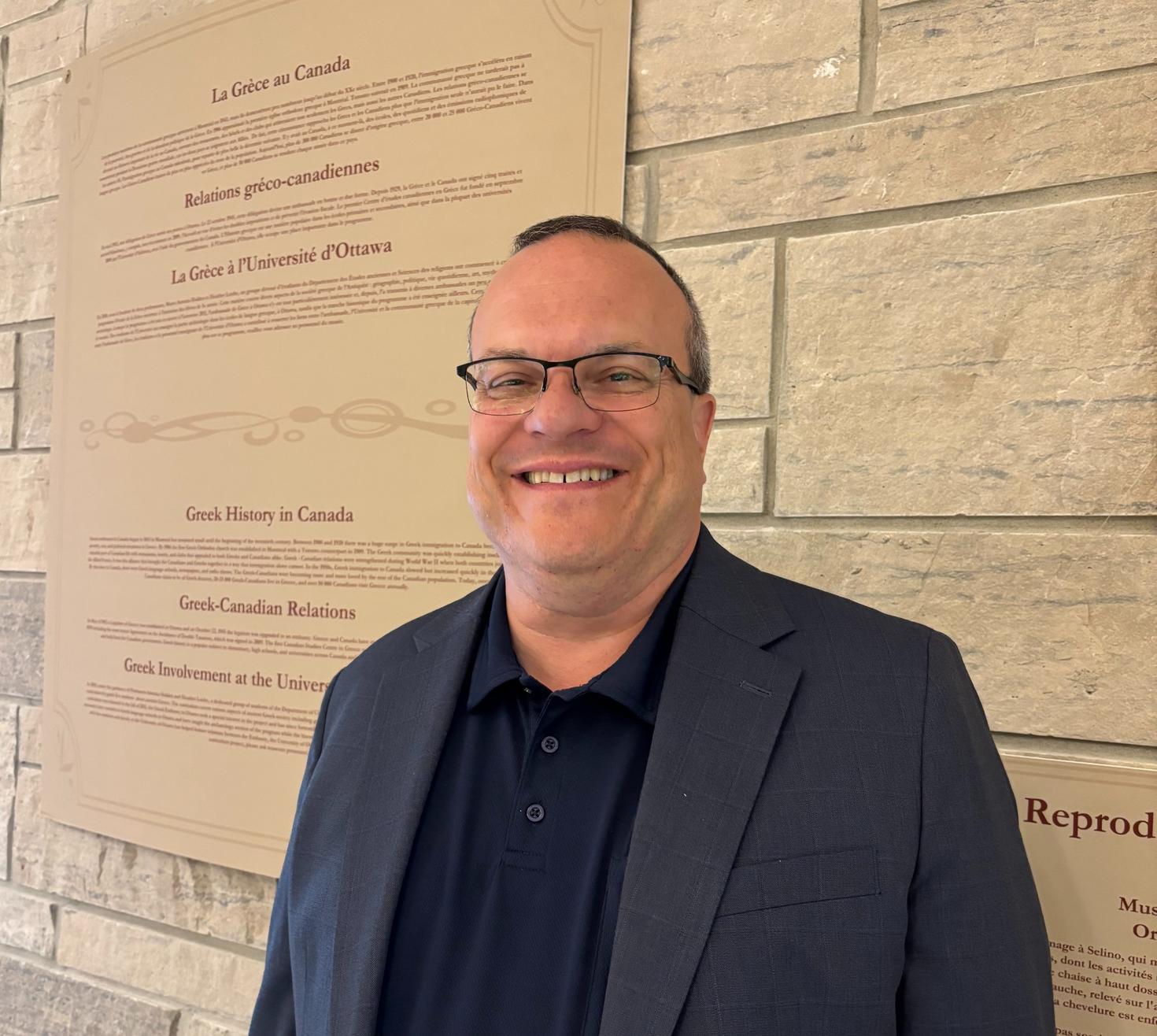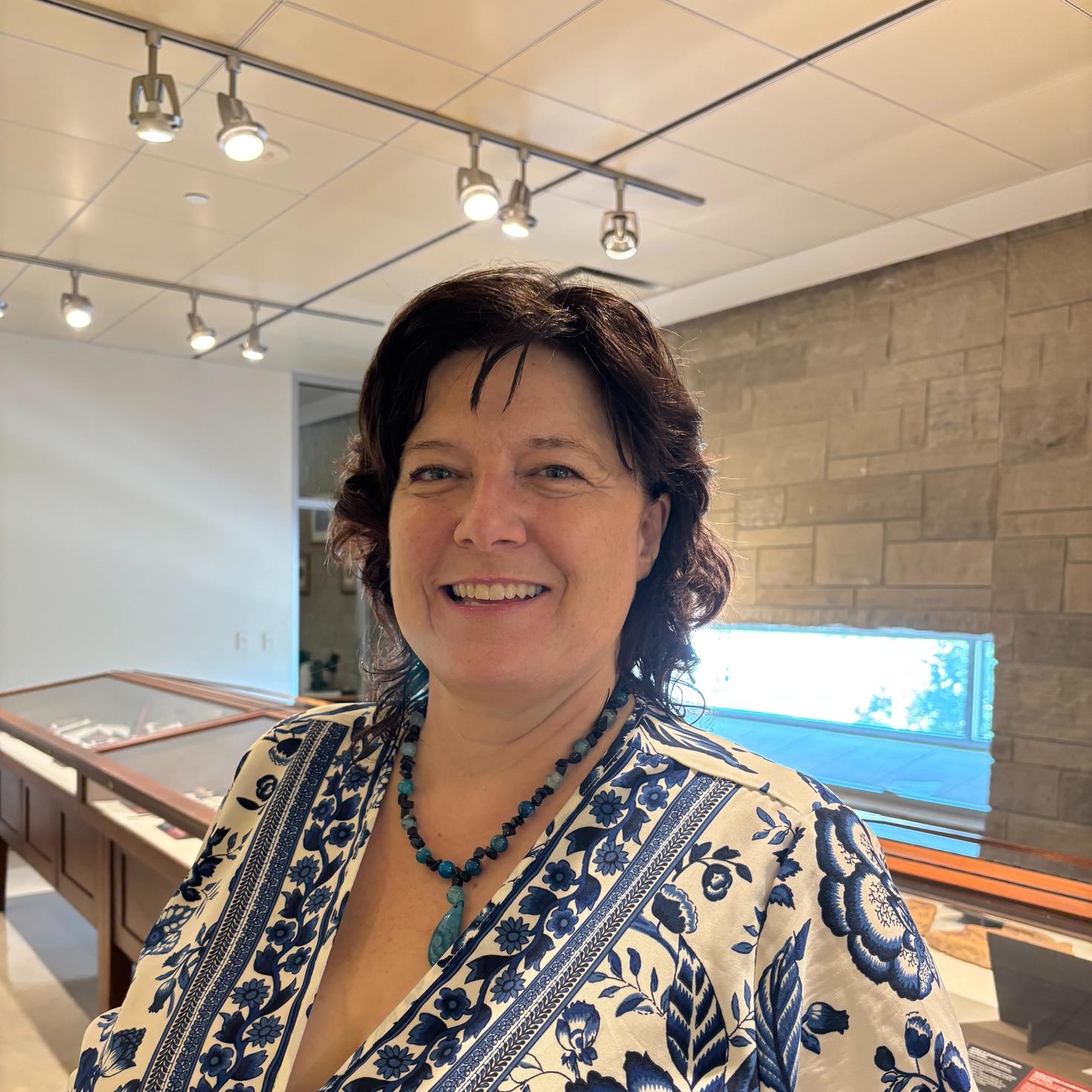Professor John Serrati, a gifted storyteller, led them from through the display cases, inviting guesses, laughter and moments of surprise — from trying to recognize Roman emperors on ancient coins to learning that a mirror was a sign of high status in ancient Greece. A terracotta oil lamp from Carthage showed how homes were lit at night, while a carved bas-relief of a game reminiscent of hockey sparked comparisons with modern times.
But this lively visit was more than an introduction to the ancient world — it symbolized a partnership with a social services agency that’s opening the University’s doors to the wider community.
Through its collaboration with the Mission, the museum has become a space for inclusive, hands-on learning. The Stepping Stones centre helps people experiencing low income or homelessness meet their learning goals and develop skills. By incorporating museum visits into its curriculum, the centre gives participants a chance to engage with artifacts spanning the 7th century BC to the 7th century AD — pieces that connect daily life in the ancient world to modern experience. It also opens doors to uOttawa itself, making clear that University spaces, resources and expertise are accessible to the wider community.
Fuelling curiosity and connection
For Serrati, a professor at the Faculty of Arts and museum director, the initiative is about more than showing objects; it’s about creating moments of recognition and connection. “We want to make the museum a welcoming place for everyone,” he says. “History is not just something in books or behind glass — it’s something you can experience and relate to.”

« Nous voulons que le musée soit un endroit accueillant pour tout le monde, dit-il. L’histoire, ça ne s’apprend pas seulement dans les livres ou en regardant des vitrines, ça se vit. »
John Serrati
— Directeur du musée d’antiquités gréco-romaines
Alongside Collections Manager Isabelle Guérin, who offered historical and technical insights throughout the visit, Serrati ensured that each stop in the museum led to a conversation, not a lecture. Together, they showed how museums — and universities — can fuel curiosity and invite every visitor into the story of our shared past.
Kathy Cillis, a teacher at the Mission, says the impact is immediate. “We were fascinated by all the artifacts — things we might not have fully appreciated without the guidance of the experts at the museum. The students left not just having learned something new, but having experienced it.”

« Notre intérêt pour les artéfacts était immense! Et les commentaires des spécialistes qui nous accompagnaient y sont pour beaucoup. »
Kathy Cillis
— Enseignante à la Mission d'Ottawa
Moments of discovery
The partnership with the Stepping Stones centre is already creating memorable moments of discovery — and both sides see potential to take it further. Serrati envisions more frequent visits, opportunities for students to focus on a specific artifact between sessions and even the possibility of welcoming Stepping Stones participants as museum volunteers.
For the museum, this work is part of a broader commitment to being a teaching-centred, student-focused space with experiential learning at the forefront. From workshops to special events and activities, the museum believes in not only opening its collection to students, but also to the local community. Every visit is a chance to remind visitors that history belongs to everyone.


